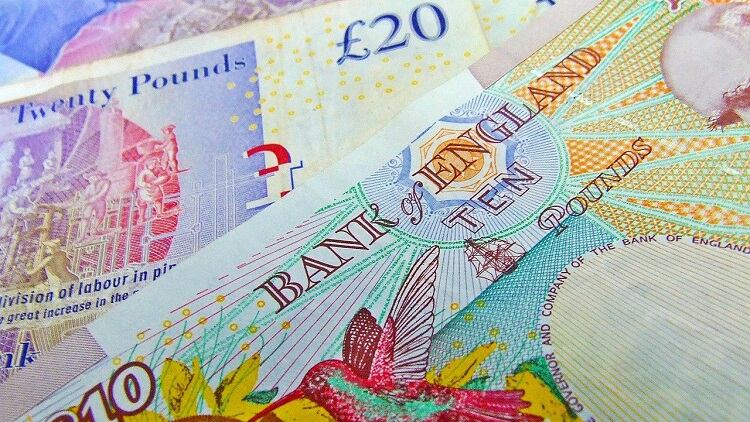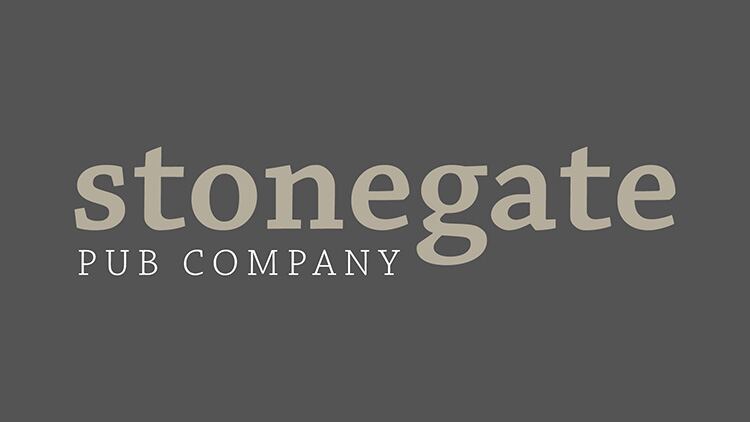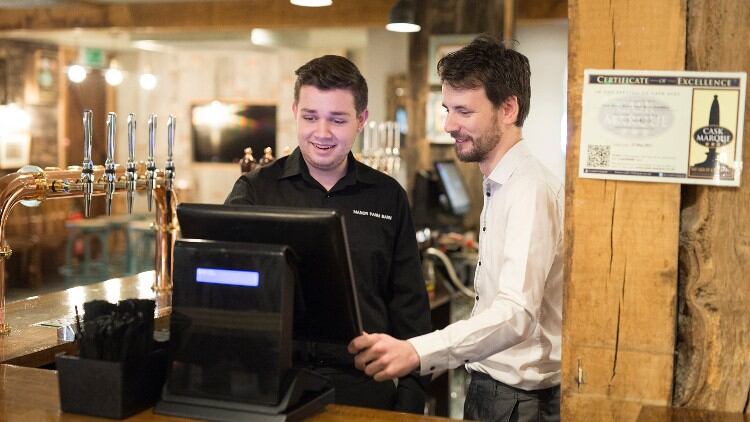Workers are set to encounter the “biggest ever cash boost”, the Government hasstated. Nearly 3m workers will profit from increases to the NLW (the Government-mandated minimum wage for workers aged 25 and above) and minimum wage rates for younger workers, according to the independent Low Pay Commission (LPC).
On New Year’s Eve, the Government announced it will boost wages once again. By 1 April 2020, operators will find themselves paying a minimum wage of £8.72 an hour for staff aged 25 and over.
Prime Minister Boris Johnson said: “Hard work should always pay but, for too long, people haven’t seen the pay rises they deserve.
“Our Government will put a stop to that, giving nearly 3m people from Edinburgh to Eastbourne a well-earned pay rise, including the biggest ever cash boost to the national living wage.”
The wage rise means the Government is on track to meet its target for the NLW to reach 60% of median earnings by 2020.
“But that’s not all,” Johnson continued. “As we enter a new decade, we’re setting our sights higher, to help people earn more over the next five years and level up access to opportunity across our great country.”
Since the national minimum wage (NMW) was introduced on 1 April 1999, it has delivered the fastest pay rise for the lowest earners in 20 years.
According to the LPC’s 20 Years of the National Minimum Wage report, almost a third of all workers have benefited from the direct and indirect effects of the minimum wage.
In fact, workers earned around £8bn more in 2018 than they would have in the absence of the minimum wage – the total increase in pay over the first 19 years of the NMW/NLW is estimated to have reached £60bn in 2018 prices.
The LPC report also revealed that the bottom 1% of workers were paid £2.70 an hour more in real terms in 2018 than they would have been with average pay growth – an additional £5,000 a year for the lowest paid full-time worker.
However, while staff will be unlikely to turn their noses up at another upward bump in wages, some operators and trade bodies could be up in arms and argue that it threatens their businesses.
Making sacrifices
Licensee Amy Durnall, who owns the White Hart in Chilsworthy, Cornwall, with her husband Ian, shared her worries about the impact of the increasing costs and how this shift will affect her business this year.
“It does keep you awake at night sometimes,” she said. “I’m always having to watch staff hours to make sure costs stay to a minimum.”
Despite paying their staff above NMW requirements (25 and over receive up to £8.95), Durnall says she has had to make sacrifices to uphold the extra payment.
“We try to make all staff feel valued and paying just that little bit more does encourage them to stay.
They also get great perks too like food on shift and free training,” she added.
But Durnall says she has recently reduced front-of-house staff hours and taken on a lot of the extra work herself to
save on wages.
Will all operators have to make such sacrifices in order to survive another rise in staff wages?
The LPC report detailed how employers have had to accept lower profits as a result of pay increases. This is because they are either unable to raise productivity in line with increases or feel they cannot raise prices or must cut other costs to balance such wage increases.
Some other employers have had to raise prices in response to NMW/NLW increases, passing increased costs on to consumers. However, many employers told the LPC they have limited ability to pass on these costs because doing so would undermine their competitiveness.
Unite the union, however, has also shed a light on concerns regarding operators finding ways to counterbalance the increased cost but, at the employee’s expense.
Unite national officer for the hospitality sector Dave Turnbull said: “Our members do worry that employers will attempt to claw back the value of the increase somehow.
“Over the past couple of years, we’ve seen staff meals and other benefits curtailed, premium rates for overtime and bank holiday working slashed and tips manipulated to address skill differentials.
“When employers essentially try to take back with one hand what the Government has awarded with another, it damages the reputation of the industry and makes the recruitment and retention problem worse than it already is.”
Mitigating cost growth
So how could such consequences be avoided? Can cuts be made elsewhere? Trade bodies have outlined how this could be done.
British Beer & Pub Association (BBPA) policy director Andy Tighe said: “We think business rates reform needs urgent attention, so all pubs benefit from lower rates. And similarly, with beer duty, with
seven out of 10 drinks sold in pubs still being beer, any further support they give on beer duty to keep prices down is vital.”
While BBPA and UKHospitality (UKH) have both acknowledged that the increase will further reward the great work of staff, UKH has also explained that for this to be sustainable, other measures must be taken.
UKH chief executive Kate Nicholls says: “UKH has long argued business rates place an unfair burden on hospitality.
“It is now critical that rates are cut for the sector in April, to provide relief while the Government’s commitment to a more fundamental review of business taxation is delivered.”
Licensees Association chief executive Nick Griffin explained: “While we cautiously welcome rises to the NLW, recognising it is important to reward staff for a job well done and to continue to ensure our industry remains an attractive to work in, we also need to recognise the stress already obvious in the sector.
“We have all witnessed pubs closing and are aware of failing businesses as a consequence of increasing costs to our hard-working licensees. Let’s not forget, while the Government make the laws, it is not they who are paying the wages.
“We need to look at proper reform within the sector alongside any increases to the NLW if we are to avoid increases sending even more businesses into financial distress or to them cutting back on staff.
“Root-and-branch reform of business rates, the discontinuance of the inflationary RPI index and genuine assessment of fair maintainable trade are all measures that will help create a fairer environment for our publicans to operate in.”
So while concerns rumble as operators are soon to implement another pay rise for their staff, if we look on the other side, how beneficial is the NLW and NMW to the everyday worker.
Ward off poverty
For 20 years now, low-paid workers have consistently seen higher hourly wage growth than other groups.
According to the LPC report, the main rate of the minimum wage was introduced at £3.60 in 1999 and has since grown faster than prices, average wages and GDP per head. When the NMW was introduced in April 1999, 830,000 jobs held by workers of all ages were paid the minimum wage and in April 2018, this figure had reached around 2m, representing double the proportion of jobs covered from 3.4% to 7% of all jobs.
Around half of this increase is due to the NLW, which was introduced in 2016 and covered workers aged 25 and over. In April 1999, 680,000 jobs held by workers aged over 25 were covered by the minimum wage and, by April 2018, this had grown to 1.6m jobs.
However, despite the hike in NMW over the past 20 years, Turnbull says there is still some way to go. He continues: “The so-called living wage rates are still far below the real living wage rates of £9.30 and £10.75 an hour, which is the minimum that staff need to live on.
“Staff will welcome the increase but until the minimum wage is increased to real living wage rates then workers will continue to be forced into working excessive hours in order to ward off poverty.”
But, Chancellor of the Exchequer Sajid Javid claimed that, by 2024, the NLW will increase to £10.50 by 2024.
He said: “We want to end low pay and put more money in the pockets of hard-working families. This latest rise will mean that since we introduced the national living wage in 2016, the lowest paid will have had a wage increase of more than £3,600.
“But we want to do more to level up and tackle the cost of living, which is why the NLW will increase further to £10.50 by 2024 on current forecasts.”
So while the NMW has led to many more workers benefiting from pay increases and better pay increases for the lowest paid workers than anyone else, how could this bump in the NMW also spur retention and boost recruitment?
The rise and rise of wages
Since the National Minimum Wage (NMW) was introduced on 1 April 1999, it has already delivered the fastest pay rise for the lowest earners in 20 years, putting more cash into the pockets of those who need it most.
The uptick in wage means the Government is on track to meet its current target for the NLW to reach 60% of median earnings by 2020.
Retain and recruit
Griffin says: “Only by ensuring fairness, creating an environment where the hard work of all within our industry is well rewarded can we fulfil the pubs sector potential and enable the best and brightest into our ranks.
“If we are to be fair to staff, something I am sure we all desire, then we need that fairness to be applied throughout the hospitality sector, from top to bottom.”
While many factors contribute to a fair and positive working environment to endure the hard work a hospitality job entails, could this further increase in NLW help retain staff and engage more job applications?
Jemima Withey, managing director at the Turks Head, Hasketon, Suffolk, said: “There is a general shortage of available staff, skilled and unskilled, especially chefs. Having tried different hiring strategies, including salaries at the top of market levels, I can honestly say it did not help. I don’t see it increasing the availability of talented, career-minded hospitality staff.”
However, the White Hart’s Durnall said: “In my experience, it’s hard enough recruiting because people don’t want to work the long hours and unsociable ones so it could improve [the quality of] people applying for a job.
“The hospitality business is renowned for having a high turnover of staff. People think you don’t need any training to be a bar attendant for example, it’s only pouring a pint but there’s so much more to it than that.”
However, while BBPA’s Andy Tighe agrees with Durnall that a higher wage could attract the right member of staff, he argues it could, in opposition, cause difficulty in retaining workers.
He explained: “If everyone has to pay the minimum wage then, arguably, it makes it very easy for people to move between jobs. It might make it easy to recruit, but not to retain people, because it will be easier to switch between jobs because you know you’ll be guaranteed that rate wherever you go.
“You’d like to think there will be some improvement in productivity as a result of the pay rise, such as more motivated staff, but we haven’t reported much evidence of that so far.
“If the Government recognises pubs want to pay a living wage, but they need a fair environment, a fair tax, regulatory environment to do that then, with more help on business rates and beer duty, that’s where we need to keep shouting.”
A small change, a big gamble
So who will bear the cost as workers face the “biggest cash increase ever”? Will operators have to make up the extra cost elsewhere? Will slashing business rates and cutting beer duty be the answer to make it sustainable? While we hear that some operators have had to cut back on business investment as a consequence of the minimum wage, LPC’s research has suggested that most of these financial cutbacks have not resulted in reducing employment.
Although some have reduced the number of hours they offer or slowed hiring, this has been offset by increases elsewhere – but at who’s expense?
Laura King, licensee at the Caledonia, Liverpool, said: “Any big change for a small business is a gamble.
“Providing the same product and service while managing a never-ending increase in financial burden is a constant conversation.
“We know this will lead to increase for us as an end user of so many services and it cannot always be mitigated by a simple increase in prices to the customer.”
Essentially, this boost in pay has been driven to put more money into the pockets of hard-working, low-paid Brits across the country. But with any financial inflation, comes a price, and a price that could cause collateral.
Tighe concludes: “The Government desperately needs to do more on beer duty, business rates and any other areas of regulation. The trade can’t keep on absorbing more and more costs. If it does, more pubs will close.”




